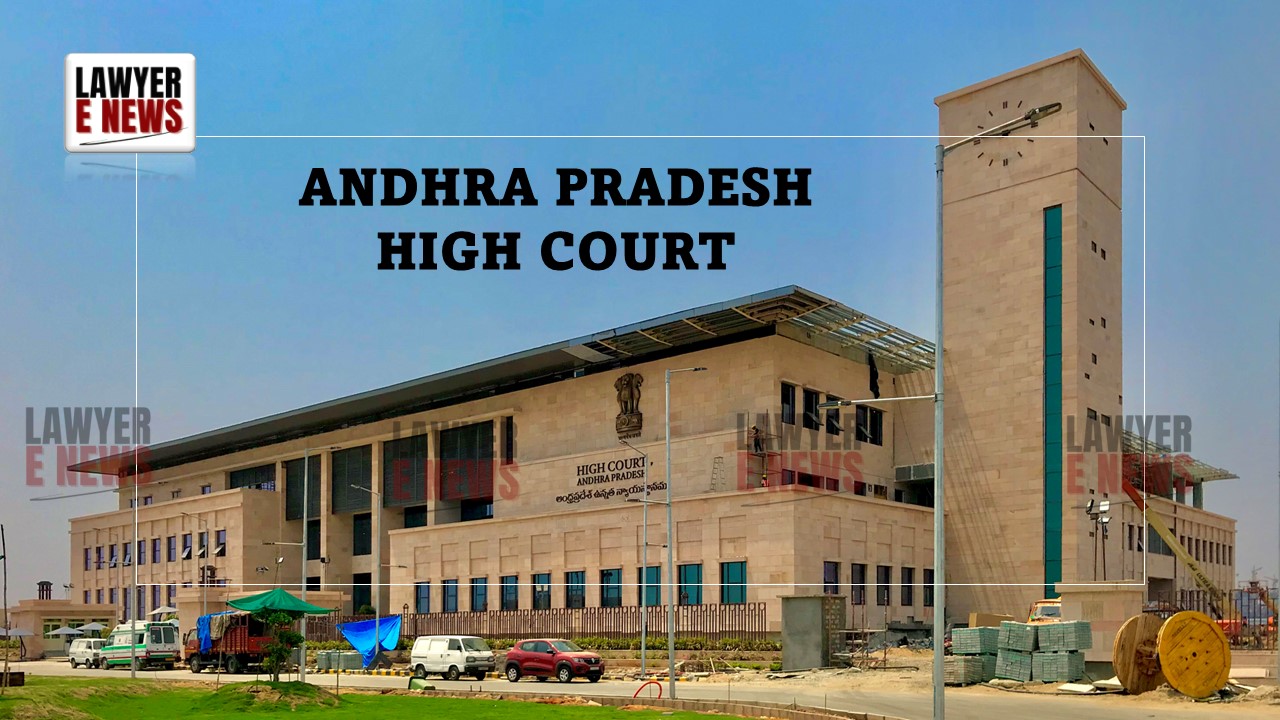-
by Admin
16 February 2026 4:21 AM



Andhra Pradesh High Court set aside the trial court’s decree granting specific performance of a sale agreement dated May 30, 1994, holding that time was of the essence of the contract. The Court found that the plaintiff failed to act diligently, did not demonstrate continuous readiness and willingness, and delayed filing the suit despite contractual deadlines.
Justice Venuthurumalli Gopala Krishna Rao, delivering the judgment, observed: "When parties stipulate a time frame for completing contractual obligations, it carries significance and cannot be ignored. Mere filing of a suit within the limitation period does not automatically entitle the plaintiff to specific performance."
The dispute arose from a sale agreement executed on May 30, 1994, between the first defendant (vendor) and the plaintiff (purchaser) for a property in Kadapa town, agreed upon for ₹7,00,000, with ₹1,50,000 paid as advance. The contract required the plaintiff to pay the balance ₹5,50,000 by October 31, 1994, failing which the advance would be forfeited and the contract canceled. The plaintiff, however, failed to make the payment within the stipulated period and did not issue any legal notice expressing his readiness.
The trial court had decreed specific performance, directing the defendants to execute a sale deed in favor of the plaintiff upon deposit of the balance ₹3,35,000. This decision was challenged in appeal, where the defendants argued that the plaintiff lacked financial capacity, failed to act within the contractual period, and filed the suit after an unreasonable delay.
Time Being the Essence of the Contract
The High Court ruled that "time was the essence of the contract, as evident from the agreement’s explicit stipulations and the surrounding circumstances." The Court relied on Supreme Court precedents, including Saradamani Kandappan v. S. Rajalakshmi (2011) 12 SCC 18, which held:
"When the parties prescribe a time for completing contractual steps, courts must scrutinize delays and ensure that relief is not granted to those who have acted negligently."
Applying this principle, the Court observed: "The plaintiff had over five months to make the payment but did not take any steps before the deadline. Instead, he appointed a General Power of Attorney (GPA) holder on January 15, 1995, much after the contractual deadline, showing a lack of diligence on his part."
Readiness and Willingness: Plaintiff’s Failure to Perform Obligations
On the question of readiness and willingness, the Court reiterated that: "Readiness means financial capacity, and willingness requires continuous intent and action. The plaintiff neither paid the balance nor issued a notice expressing his willingness. The defendant’s legal notice dated October 26, 1994, demanding payment was ignored, reinforcing the plaintiff’s inaction."
Citing K.S. Vidyanadam v. Vairavan (1997) 3 SCC 1, the Court held: "Even when time is not expressly made the essence, courts must consider delays and scrutinize whether the plaintiff’s conduct justifies the grant of specific performance."
Since the plaintiff remained silent and took no steps before the contractual deadline, the Court ruled that he failed to establish continuous readiness and willingness, disentitling him to specific performance.
Discretion in Granting Specific Performance
The Court emphasized that specific performance is a discretionary relief and that courts must consider whether the plaintiff’s delay and conduct warrant its denial. It relied on Shenbagam v. K.K. Rathinavel (2022) 5 SCC 162, where the Supreme Court held:
"Courts must examine whether one party will unfairly benefit from a decree and whether granting specific performance would cause injustice to the other party."
Applying this principle, the Court noted: "The plaintiff took no steps to pay the balance within the stipulated period, failed to respond to the vendor’s legal notice, and unreasonably delayed filing the suit. This conduct disentitles him from specific performance."
Alternative Relief: Refund of Advance Ordered With 12% Interest
Although the plaintiff did not seek a refund of the advance amount, the Court, exercising its powers under Section 22 of the Specific Relief Act, 1963, ordered the defendant to refund ₹2,50,000 with 12% per annum interest from November 1, 1994, till payment. The Court cited Usha Devi v. Ram Kumar Singh (Civil Appeal No. 8446 of 2024), where the Supreme Court held:
"Even if the plaintiff does not seek a refund of the amount paid, courts may grant such relief to ensure complete justice."
The High Court allowed the appeal and set aside the trial court’s judgment granting specific performance. However, it directed the defendant to refund ₹2,50,000 to the plaintiff with 12% interest per annum from November 1, 1994, until payment. It further ordered that each party bear their own costs.
This judgment reinforces the principle that specific performance is not an automatic right and that parties must demonstrate consistent readiness and willingness to perform contractual obligations. The Andhra Pradesh High Court’s ruling upholds contractual sanctity and ensures that parties failing to act diligently cannot seek judicial intervention for relief.
Date of Decision: 04 February 2025
